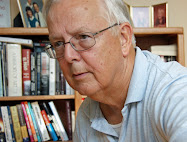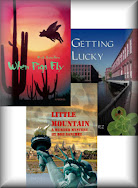Publishing is a business. Think of it that way, and you'll succeed as a writer.
Key concept: Sell-through. This is the ratio of books sold versus books shipped, so if the publisher ships 1000 copies to retailers and 400 copies are returned unsold, the sell-through is 60%. A minimum acceptable ratio is 60%; a lower rate is very bad.
If the publisher ships 500,000 copies of your book, that sounds fantastic. But if you sell only 200,000 copies, your book is a disaster. You are far better off as a writer if only 50,000 copies ship and 30,000 sell. It may sound counterintuitive, but the sell-through rate is critical. A 50% sell-through will doom a writer's future, no matter how many copies actually sell. What a writer should want is a low initial ship rate. It's much better if the book requires a second printing.
Writers need to know this type of thing, because many publishers will cynically screw over the writers. But if you can speak the language of the publishing business, they are much more likely to treat you with respect.
You need to separate yourself and your book from everything else being published.
90% of revenue is generated from 10% of the titles.
At least 500 titles are published daily.
Develop relationships with decision makers who can help you sell your book. It helps to know someone in the publishing business.
If you are a self-published author, you will be sure to get publishers' attention by selling a few thousand copies.
Publishers also want to be able to sell your earlier published titles--this is the back list.
Visit and observe what's in book stores.
Write on a schedule.
Use small focus groups to evaluate what works in your writing.
Ingram and Baker & Taylor are big jobbers, or distributors.
Writers should look at these independents for possible distribution:
The market for audio books hasn't grown in 10 years, but the market still exists.
Best opportunities to focus:
- Tap into online sales.
- Specialty groups--organizations, groups, book clubs (Google this). This is bigger than the traditional marketplace. You might sell quantities of your book to an organization at a discount, and let them sell at list.
But don't neglect traditional bookstores.
Jerry Simmons has a free newsletter. See his website for this.
Ways to sell your book:
- Advertising
- Promotion--drawing attention to your book.
- Publicity--by far the most effective--any attention you can get for free. This can be about the author as well as about the book. Find some kind of newsworthy tie-in.
The five biggest weaknesses of publishers:
- They don't think outside the mainstream, so the specialty book market is growing at their expense.
- They don't gather information on who is buying their books. Writers should do this--know who is buying their books.
- They sell to the masses and miss the niche markets.
- They don't sell on the Internet, because they are afraid of alienating Amazon and Barnes and Noble. The Internet is the next big platform for writers.
- They tend to hit only the 30 biggest media markets.
Self-published authors should stay away from competition in the major markets.
An author should expect to make $0.60 or $0.70 profit from each sale of a book published by a NY publisher.
Publishers tend to dislike working with writers who write in multiple genres. If you do it, you should consider using a pen name.
Marketing success depends on persistence. 99.9% of authors don't know this stuff.
















